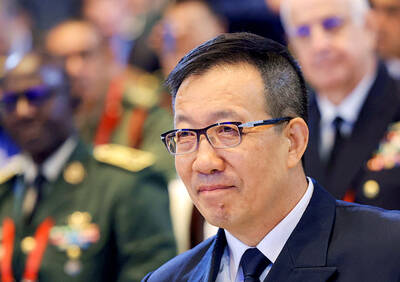Men who are habitual heavy drinkers, downing more than two pints of beer every day, are likely to start having the sort of memory lapses that are commonly associated with aging up to six years early, according to a new study.
The long-term effect of alcohol on the brain has not been extensively researched. Most studies have looked at elderly people, who have usually stopped or considerably reduced their drinking.
The paper by scientists at University College London published in the journal Neurology looks at the drinking habits of a large group of middle-aged men and women, and their performance in cognitive functioning tests — how well they think and remember things — 10 years later.
It appears to show that heavy drinking, at least in men, leads to significant deterioration over the long term. Not enough women in the study were heavy drinkers for the scientists to conclude that the same things were happening to them.
The researchers, led by Severine Sabia of the department of epidemiology and public health, analyzed data that had been generated by the Whitehall II study, a massive group of civil servants whose health has been investigated over many years.
They focused on more than 5,000 men and 2,000 women who were aged 45 to 69 at the beginning of the study. Their drinking habits were assessed three times over a decade. They took memory and executive function tests on three occasions. Executive functioning includes reasoning, task flexibility and problem-solving ability.
Heavy-drinking men — defined in the study as those who drank more than 36g of alcohol a day — began to suffer memory failures and deterioration in their cognitive processes between 18 months and six years earlier than those who drank less. Light and moderate drinkers did not show declines.
“These latest results could serve as one more reason to stick to any New Year’s resolutions to cut back on alcohol,” said Simon Ridley, head of research at the dementia research charity Alzheimer’s Research UK. “Observational studies such as this can be important for identifying factors that may influence the risk of memory decline or disease, but it’s difficult to pinpoint cause and effect with this type of research.”
“The people in this study did not have dementia, but memory decline can be a precursor to dementia and understanding the risk factors for this decline could be important for preventing the condition,” he said. “This large study has yielded useful results, although it’s not clear how far the findings from this group of civil servants can be generalized to the wider population. It’s crucial to continue investing in research if we are to understand how to keep our brains healthy as we age and prevent the diseases that cause dementia.”

DEADLOCK: Putin has vowed to continue fighting unless Ukraine cedes more land, while talks have been paused with no immediate results expected, the Kremlin said Russia on Friday said that peace talks with Kyiv were on “pause” as Ukrainian President Volodymyr Zelenskiy warned that Russian President Vladimir Putin still wanted to capture the whole of Ukraine. Meanwhile, US President Donald Trump said that he was running out of patience with Putin, and the NATO alliance said it would bolster its eastern front after Russian drones were shot down in Polish airspace this week. The latest blow to faltering diplomacy came as Russia’s army staged major military drills with its key ally Belarus. Despite Trump forcing the warring sides to hold direct talks and hosting Putin in Alaska, there

North Korea has executed people for watching or distributing foreign television shows, including popular South Korean dramas, as part of an intensifying crackdown on personal freedoms, a UN human rights report said on Friday. Surveillance has grown more pervasive since 2014 with the help of new technologies, while punishments have become harsher — including the introduction of the death penalty for offences such as sharing foreign TV dramas, the report said. The curbs make North Korea the most restrictive country in the world, said the 14-page UN report, which was based on interviews with more than 300 witnesses and victims who had

COMFORT WOMEN CLASH: Japan has strongly rejected South Korean court rulings ordering the government to provide reparations to Korean victims of sexual slavery The Japanese government yesterday defended its stance on wartime sexual slavery and described South Korean court rulings ordering Japanese compensation as violations of international law, after UN investigators criticized Tokyo for failing to ensure truth-finding and reparations for the victims. In its own response to UN human rights rapporteurs, South Korea called on Japan to “squarely face up to our painful history” and cited how Tokyo’s refusal to comply with court orders have denied the victims payment. The statements underscored how the two Asian US allies still hold key differences on the issue, even as they pause their on-and-off disputes over historical

BEIJING FORUM: ‘So-called freedom of navigation advocated by certain countries outside the region challenges the norms of international relations,’ the minister said Chinese Minister of National Defense Dong Jun (董軍) yesterday denounced “hegemonic logic and acts of bullying” during remarks at a Beijing forum that were full of thinly veiled references to the US. Organizers said that about 1,800 representatives from 100 countries, including political, military and academic leaders, were in Beijing for the Xiangshan Forum. The three-day event comes as China presents itself as a mediator of fraught global issues including the wars in Ukraine and Gaza. Addressing attendees at the opening ceremony, Dong warned of “new threats and challenges” now facing world peace. “While the themes of the times — peace and development —